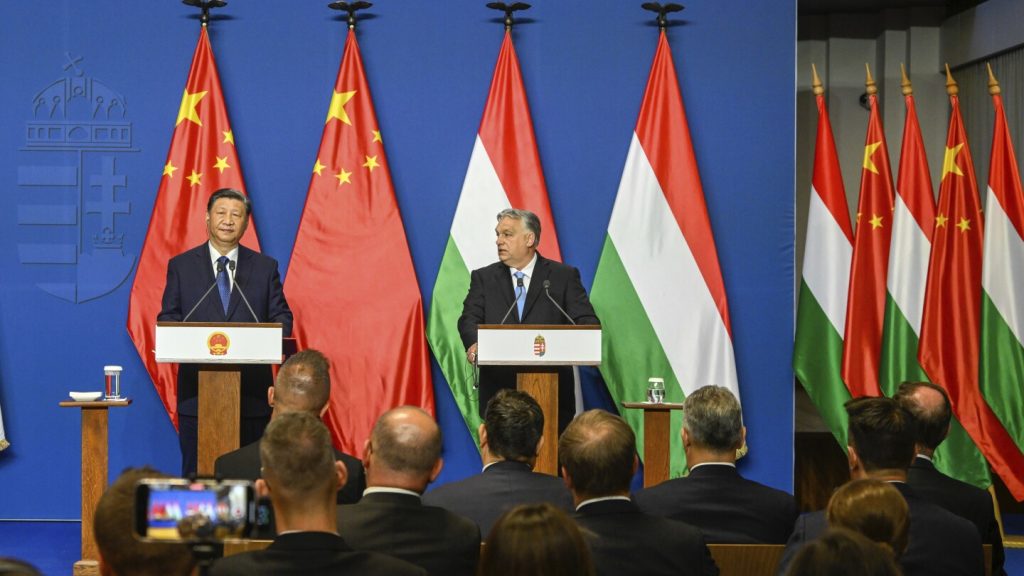Chinese President Xi Jinping visited Hungary last week, and during his time in the country, he secured deals that pave the way for China’s economic expansion in Europe. Hungary has taken a different approach compared to other EU countries by welcoming Chinese investments, believing that China is crucial for Europe’s future. Despite concerns from allies, Hungarian Prime Minister Viktor Orbán and Xi announced an “all-weather partnership” that focuses on economic cooperation.
While specific agreements were not unveiled during Xi’s visit, Hungary and China reached deals on projects such as a joint railway bypass around Budapest and a high-speed train link between the capital and its airport. The two countries also expanded cooperation in the nuclear industry, electric vehicle charging stations, and an oil pipeline between Hungary and Serbia. These agreements showcase China’s view of Hungary as a reliable ally within the EU and highlight Hungary’s commitment to strengthening ties with China.
Serbia, Hungary’s neighbor to the south, is also pursuing a similar strategy by providing opportunities for Chinese companies to invest in various projects. Serbian President Aleksandar Vučić has built an autocratic governance model that appeals to China, making the country an attractive destination for investments and partnerships. During Xi’s visit to Serbia, they signed an agreement promoting a “shared future,” making Serbia the first European country to do so with China, aligning with China’s vision of a new international order.
China has made significant investments in Serbia, particularly in mining and infrastructure projects, solidifying a strategic partnership between the two countries. While Serbia officially aims to join the EU, some of its agreements with China do not align with EU membership criteria. This has raised concerns among Western partners about China’s growing presence in the region and the potential economic and security risks associated with it.
The red-carpet treatment given to China by Hungary and Serbia has sparked worry among Western allies, with the U.S. envoy for the Western Balkans cautioning against China’s agenda in Europe. Hungary’s security agreement with China has raised criticism, with concerns that Chinese law enforcement officers could be used to exert control over the Chinese community in Hungary. Despite tensions with the EU, Hungary’s pursuit of Chinese investments reflects a shift towards economic self-sufficiency and competitiveness in the global market.
Hungary’s cooperation with China not only boosts its economy but also helps Beijing circumvent tariffs and protectionist policies in Europe. Chinese investments in Hungary, such as a new EV production factory and battery production, provide benefits for both countries. Hungarian leaders are focused on securing their country’s competitive edge in the 21st century, showcasing a determination to succeed in the face of evolving global dynamics.


